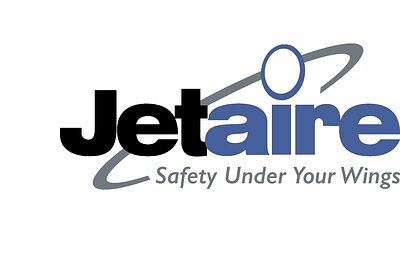
Foam-Based System Takes Flight as Airlines Race to Meet Fuel Tank Safety Deadline
A new fuel tank flammability reduction system is gaining traction as the 2026 FAA compliance date nears, offering airlines a potentially lower-cost, less disruptive path to enhanced safety. The partnership between Jetaire and STS Aviation Group could prove pivotal.
Foam-Based System Takes Flight as Airlines Race to Meet Fuel Tank Safety Deadline
NEW YORK, NY – November 12, 2025
The Urgent Need for Flammability Reduction
The aviation industry is facing a critical deadline. By 2026, airlines must comply with Federal Aviation Administration (FAA) regulations mandating fuel tank flammability reduction (FTFR) measures. This rule, spurred by past accidents, aims to minimize the risk of ignition within fuel tanks, and requires significant investment and modifications across numerous aircraft fleets. While nitrogen-generating systems have been the predominant solution, a new contender is emerging, offering a potentially simpler and more cost-effective alternative.
Jetaire Group, a leading manufacturer of aviation safety technology, has partnered with STS Aviation Group’s Tank Tigers to become the preferred global installer of its INVICTA™ system. This collaboration aims to provide airlines and lessors with a viable path to compliance, and may signify a shift in how aviation safety is approached.
INVICTA™: A New Approach to an Old Problem
The INVICTA™ system utilizes reticulated polyurethane foam installed within the fuel tanks. This foam effectively mitigates the risk of ignition by suppressing flammable vapor concentrations. Unlike nitrogen-generating systems, which require ongoing maintenance and can be complex to install, INVICTA™ is a passive system requiring no ongoing maintenance or fuel purging. This simplicity translates to reduced operational costs and faster aircraft turnaround times—a crucial advantage in today’s competitive airline landscape.
“The appeal of a system that significantly reduces maintenance burden is strong,” says an aviation maintenance engineer. “Nitrogen systems, while effective, add a layer of complexity and expense that airlines are increasingly looking to minimize.”
The system is already certified by major aviation authorities, including the FAA, EASA, ANAC, and AFAC, and is approved for a range of aircraft types, including the Airbus A320/A330 and Boeing 737/757/767. Development is nearing completion for the Boeing 777, expanding its applicability even further. Nearly 60 aircraft are currently flying with the system installed as of this month.
Strengthening the Supply Chain for Critical Modifications
Beyond the technological innovation, the partnership between Jetaire and STS Aviation Group is strategically significant. STS Aviation Group, a robust MRO provider, has recently received substantial investment from H.I.G. Capital, bolstering its capacity to handle large-scale installations. This financial backing and demonstrated growth positions STS as a reliable partner for airlines looking to rapidly modify their fleets.
“The ability to scale up and provide consistent, high-quality installations is paramount,” notes an industry analyst. “Airlines need assurance that they can get the modifications done efficiently and without disrupting their operations.”
STS Aviation Group’s global network and broad range of MRO services, including base and line maintenance, repairs, and modifications, complement Jetaire's technology perfectly. This ensures a streamlined process, from system procurement to installation and ongoing support. The partnership effectively addresses potential supply chain bottlenecks and provides airlines with a single point of contact for all their FTFR modification needs.
Canadian North and Nolinor Aviation have already selected INVICTA™ for their Boeing 737 fleets, and WestJet followed suit, citing the system’s cost-effectiveness and minimal downtime. A major lessor is currently undergoing installations on its Airbus A330 fleet, with the aircraft destined for operation in Latin America.
“The decision to adopt INVICTA™ was driven by a combination of factors,” says a source within one of the adopting airlines. “The system’s reliability, coupled with the reduced maintenance burden and faster installation times, made it a compelling choice.”
The collaboration between Jetaire and STS Aviation Group isn’t merely about installing a new system; it’s about building a robust, reliable, and scalable solution for a critical industry need. As the 2026 deadline approaches, this partnership is poised to play a significant role in ensuring the safety and efficiency of air travel.
